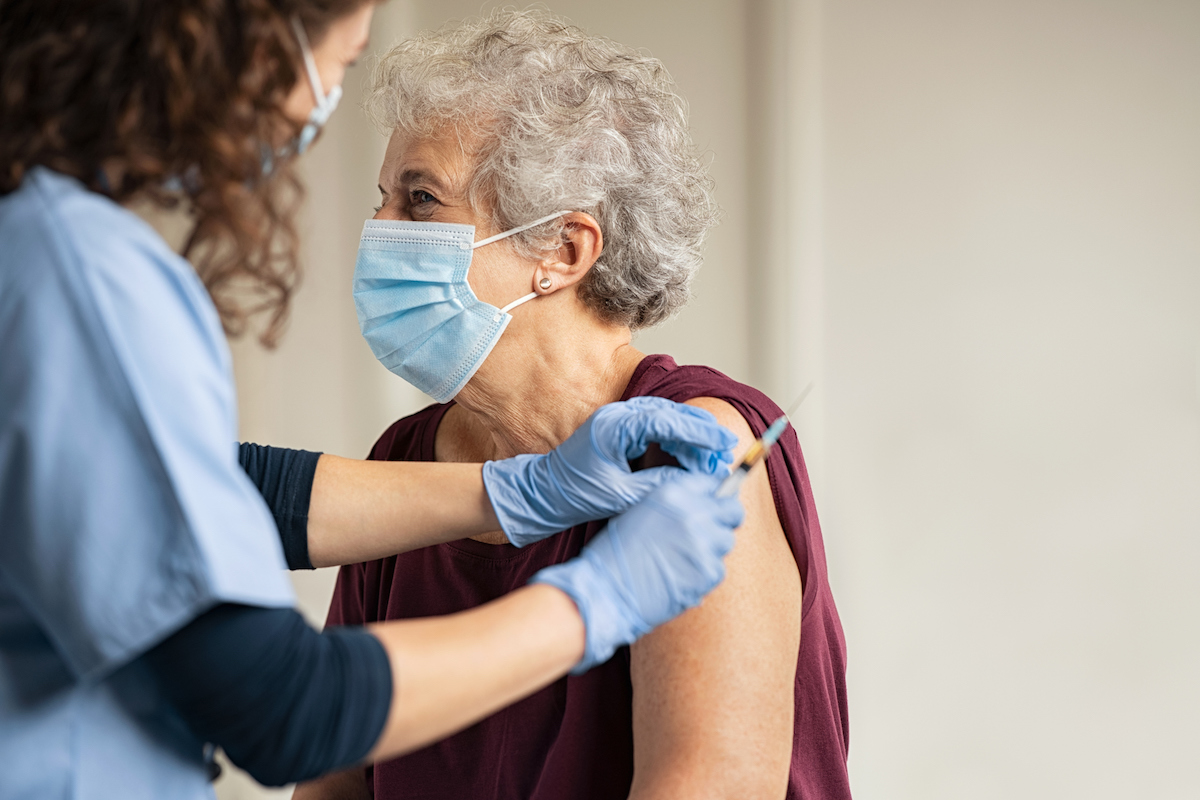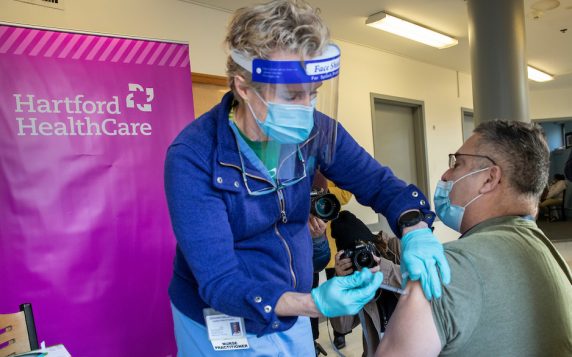Now that the Food and Drug Administration has authorized a second COVID-19 booster shot for anyone over 50 years old and certain immunocompromised people, should it be on your medical to-do list if you qualify?
It depends, says Dr. Ulysses Wu, Hartford HealthCare’s System Director of Infection Disease and Chief Epidemiologist.
Start with these three considerations:
- The Omicron subvariant: “We have a variant in Omicron that may be causing an increase in illness, not a surge or spike we normally would see,” he says. “But it would be causing an increase in illness.”
- Timing of your first booster: “If somebody who got their booster or last vaccination several months ago,” he says, “you take that in conjunction with waning immunity.”
- Are you at risk?: “Do you have a comorbid medical condition that could put you in complications if you got COVID?” he says.
The Centers for Disease Control and Prevention, which, like the FDA, signed off on the second booster March 29, specified eligibility without declaring any level of urgency. More than ever, the vaccine has become a personal choice.
Yet there’s no doubt a second booster provides additional protection. A new study in Israel found the fourth shot reduced deaths among people over 60 by more than half compared with people who had a single booster. Of those with a fourth shot, only 0.03 percent died. Less than 0.1 percent of people with a third shot died from COVID. A fourth shot also reduced rates of infection and serious illness.
Israel, Sweden and Chile were among the countries first offering a fourth shot to older adults and certain groups. Germany has authorized a fourth shot for anyone over 70. The United Kingdom (age 75) and Sweden (age 80) are also offering a second booster to older adults.
Dr. Wu says he’s less concerned with the Omicron subvariant, BA.2, now the dominant strain in the United States, than with the potential development of a new strain emerging from the unvaccinated population during the Southern Hemisphere’s winter season that could reach us in late summer.
“People are definitely going to have to weigh their options,” says Dr. Wu. “There’s probably very little downside to getting another booster. But we may need another one certainly in the fall. It’s something to take into account.”



